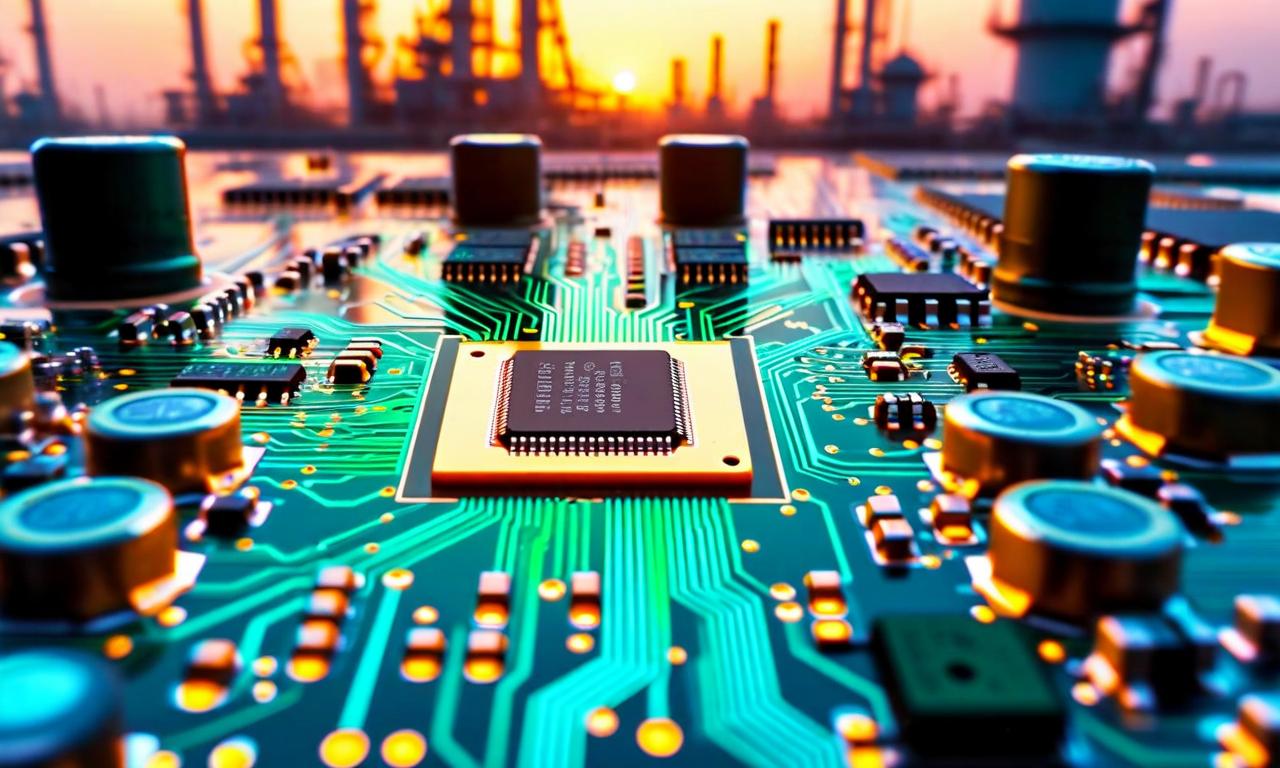Intel Shares Jump 6% Amid Market Speculation
Intel Corporation's stock price rose over 6% following a $2 billion capital injection from SoftBank Group. This investment comes at a critical time for Intel, which recently reported its first annual loss since 1986, amounting to $18.80 billion. The company's last positive adjusted free cash flow was in 2021. As a major player in the global semiconductor market, Intel's performance and strategic decisions are closely monitored by industry observers and investors.

*this image is generated using AI for illustrative purposes only.
Intel Corporation, a leading player in the technology sector, has recently seen a significant movement in its stock price. The company's shares rose more than 6%, reflecting positive market sentiment.
Recent Financial Context
Intel has been facing financial challenges in recent times. The company recorded an annual loss of $18.80 billion, marking its first loss since 1986. Intel's last positive adjusted free cash flow occurred in 2021.
Capital Injection
Recently, Intel received a $2.00 billion capital injection from SoftBank Group. This investment comes at a crucial time for the company as it navigates through its financial difficulties.
Industry Implications
As a significant player in the global semiconductor market, developments at Intel can have far-reaching consequences for the broader technology sector and global chip market. The company's performance and strategic decisions are closely watched by industry observers and investors alike.
Market Reaction
The tech industry and financial markets continue to monitor Intel's situation closely. The recent 6% jump in Intel's share price suggests a positive reception from investors, but the long-term implications remain to be seen.
As more details emerge about Intel's strategies and market position, stakeholders will be keenly analyzing their potential impact on the company's competitiveness and the broader U.S. semiconductor industry.

























